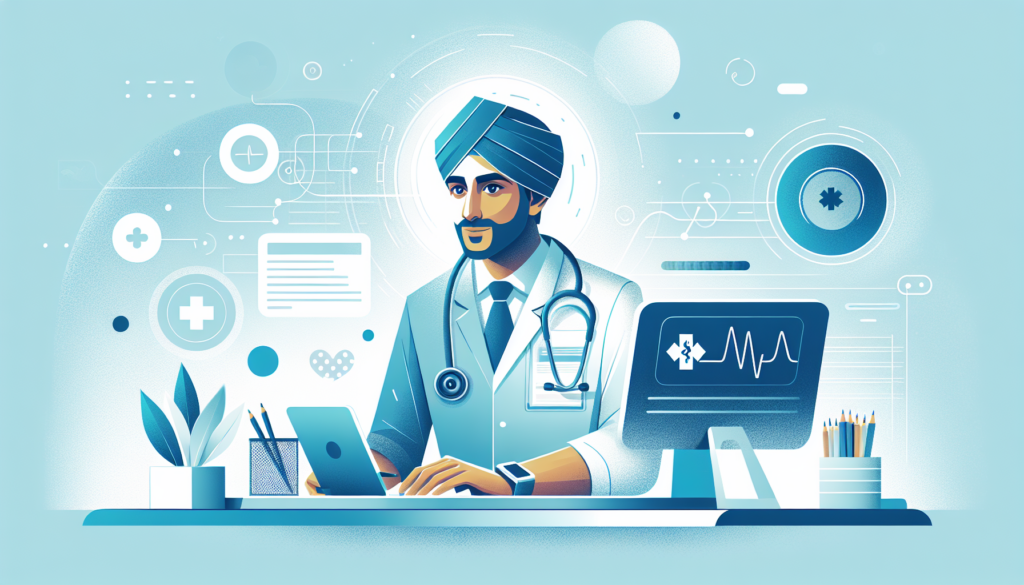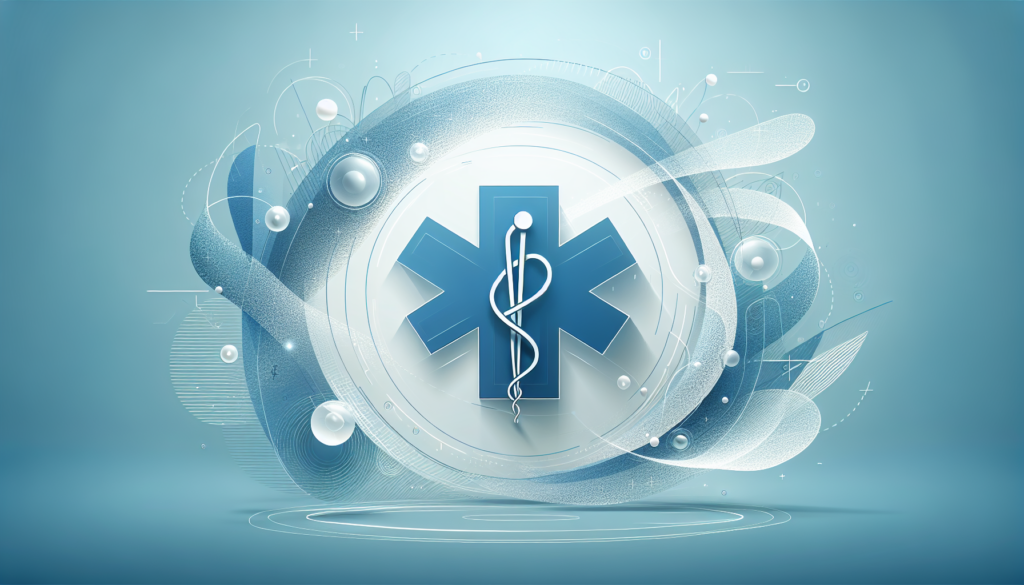Understanding the Importance of Medical Record Dictation Disclaimers
Medical record dictation disclaimers are a crucial element in the realm of clinical documentation. With the advent of advanced technologies such as AI-powered digital scribes, ensuring the accuracy and liability of medical records is more important than ever. These disclaimers serve as a protective measure, setting the boundaries of use and clarifying the limitations of the documentation tool. They provide a clear message to users about the expectations and responsibilities involved in the process of medical dictation. By acknowledging the potential for errors and the need for review, disclaimers reinforce the importance of maintaining the highest standard of patient care through precise documentation.
Dictation disclaimers act not only as a safeguard for medical professionals but also assure patients that their health records are handled with the utmost care and scrutiny. It is imperative to understand that while technology can immensely aid the efficiency and convenience of medical note-taking, it is not infallible. A disclaimer communicates the essential truth that the human element – the expertise and oversight of healthcare providers – is irreplaceable in validating the clinical information recorded. This understanding underpins the responsible integration of technology in healthcare, ensuring that it enhances rather than impedes the delivery of quality patient care.
- Defines the scope of technology use
- Clarifies the roles and responsibilities
- Highlights the necessity for human oversight
- Upholds high standards of patient care
A comprehensive medical record dictation disclaimer should succinctly encapsulate the potential risks and the essential need for a meticulous review process. The transparency provided by such disclaimers builds trust in the use of digital transcription tools, fostering an environment where technology serves as a reliable assistant to healthcare practitioners. In this context, medical professionals are reminded to engage continuously with the transcribed data, ensuring its alignment with the clinical observations and decisions made during patient encounters. The shared goal remains clear: leveraging technological advancements to augment the healthcare experience without compromising on the fidelity of medical records.
Navigating Legal Implications: Disclaimers in Medical Dictation
In the realm of medical documentation, disclaimers play a pivotal role in maintaining the legal integrity of medical records. As physicians turn towards AI-powered tools like ScribeMD for efficient medical note-taking, understanding the implications of disclaimers within dictation systems becomes essential. These legal statements serve to clarify the nature of the content, defining limitations to the use of the dictated information and assigning responsibilities regarding the accuracy of the medical notes. Their use is not merely a formality; disclaimers are a safeguard, delineating professional judgment from transcription interpretation.
When crafting disclaimers for medical dictation, one must be mindful of the legal requirements and practice standards specific to the medical profession. The articulated disclaimers should adequately reflect the scope of the medical professional’s duties while concurrently protecting the integrity of medical records. As such, a well-formulated disclaimer addresses potential misunderstandings that could arise from voice-transcribed notes, emphatically stating that any medical decisions should not be made without the direct involvement and validation of a certified medical practitioner. The disclaimer often insists that the content is for informational purposes only, signaling the necessity for human oversight before finalizing treatment plans.
- Clarification of Content: Disclaimer statements should clearly delineate the nature and use of transcribed medical records.
- Limitations of Use: They must indicate boundaries regarding who can interpret and apply the information within the medical notes.
- Responsibility for Accuracy: Assign accountability for validation and review of the transcribed data, reinforcing the significance of physician oversight.
- Prevention of Misunderstandings: Disclaimers should preemptively address and mitigate potential misconceptions stemming from dictation content.
The inclusion of disclaimers in medical documentation is also a strategic measure to mitigate risks associated with malpractice. In the event of litigation, a well-crafted disclaimer within medical notes can be a crucial element in the defense, underscoring the requisite role of the clinician’s discernment apart from the dictated content. They serve to remind all parties involved that the transcription is a tool meant to complement, not supplant, the expertise of healthcare providers. Therefore, legal counsel approval of disclaimer verbiage is a fundamental step to ensure the protection it offers aligns with the evolving landscape of healthcare law and regulation.
Best Practices for Implementing Disclaimers in Medical Record Dictation
When incorporating disclaimers into medical record dictation, healthcare professionals must carefully consider the manner in which they are integrated to maintain the balance between legal protection and clinical clarity. Disclaimers are essential in clarifying that the medical records provide an overview of the clinical encounter and that audio-recorded notes may not include every detail discussed. To ensure the disclaimers are effective and do not compromise the utility of the medical documents, there are a few strategic best practices to follow.
Clearly articulate the scope of the disclaimer within the dictation. This means explicitly stating that the record may not encompass every minute detail but is reflective of the significant clinical findings and decisions made during the consult. It is important to keep this language as concise as possible to avoid overburdening the transcript with legal jargon that could detract from its primary clinical function.
- Maintain a standardized placement for disclaimers in the dictation transcripts.
- Use simple, direct language that can be easily understood by both medical professionals and patients.
- Ensure that the disclaimer does not disrupt the flow of clinical information.
To reduce the potential for misunderstanding or misuse of the medical notes, it is advised that healthcare establishments develop a template for disclaimers that is consistently applied across all dictated records. Utilizing templates across the healthcare facility can aid in maintaining uniformity and compliance with legal requirements, as well as simplifying the dictation process for clinicians.
- Devise disclaimer templates tailored to different types of clinical encounters.
- Review and update disclaimer templates regularly to align with current laws and regulations.
- Provide clear guidelines on when and how to use disclaimers to the medical staff.
Integrating disclaimers into the medical dictation process augments the transparency and legal defensibility of medical records. It is crucial, however, to balance their use in a manner that does not impede the readability and clinical usefulness of the dictated notes. With thoughtful implementation and adherence to uniform standards, disclaimers can serve as an important tool in enhancing the integrity of medical documentation.
How Disclaimers Affect Medical Documentation and Liability
In the intricate world of healthcare, disclaimers serve as essential tools in medical documentation to delineate the scope of information shared and the responsibilities of all parties involved. A disclaimer, when well-crafted and strategically integrated within medical records, can play a significant role in mitigating potential liability that healthcare providers may face. By setting explicit expectations and clarifying any limitations of the information provided, disclaimers help in reinforcing safeguards against legal action that might stem from misunderstandings or misinterpretations.
However, it’s crucial to note that the mere presence of a disclaimer in medical documentation does not create an impenetrable shield against liability. For a disclaimer to serve its purpose effectively, it must abide by certain criteria. Primarily, the language used should be straightforward and easily understood by the patient or any third party. In addition, the disclaimer must be prominently placed to ensure visibility. Lastly, it should not attempt to waive rights or responsibilities that are protected under law, as this could render it unenforceable in a court setting.
The effects of disclaimers reach beyond just their involvement in legal defensibility; they also impact the quality and clarity of health records. Disclaimers have the potential to instill confidence in readers about the contents of the medical documentation. They serve as caveats for interpreting clinical data, which can be particularly beneficial when dealing with experimental treatments, off-label medication usage, or outcomes that may vary widely among patients. A thoughtfully constructed disclaimer can thus facilitate better understanding and communication between healthcare professionals and their patients, which is at the core of ScribeMD’s AI-powered digital scribe service goals.
It is also essential for disclaimers to be regularly reviewed and updated to reflect changes in laws, regulations, and medical standards. In the dynamic landscape of healthcare, where medical advances and legal parameters evolve continuously, staying up-to-date with such aspects is a key responsibility for healthcare providers. This ongoing process ensures that the disclaimers remain relevant and continue to provide clear guidance to both healthcare professionals and patients, effectively managing expectations and liabilities in the long run.
Adapting to Technological Advances: Disclaimers in AI-Powered Dictation Tools
The meteoric rise of AI technology in the healthcare sector has revolutionized the landscape of medical documentation. As medical professionals integrate AI-powered dictation tools such as ScribeMD, it’s critical to understand the role of disclaimers. These disclaimers are not mere formalities but pivotal components that articulate the limitations and appropriate use of the technology. They underscore the shared responsibility between the AI service and the healthcare provider to ensure the accuracy of medical records. To this end, embracing disclaimers is a key step in responsibly adapting to technological advances in medicine.
Disclaimers in AI-powered dictation tools are necessary to clarify that while the AI boasts a high accuracy rate, the ultimate responsibility for verifying medical notes lies with the medical professional. They serve to remind healthcare providers that technology is an aid, not a replacement, in the patient-care process. When engaging with these tools, it’s crucial for users to be mindful of the following aspects:
– Accuracy: While the predictive capabilities of AI are impressive, they are not infallible. Users must regularly review notes for errors.
– Context: AI may not always fully grasp the nuances of medical cases; thus, practitioners should ensure recorded information aligns with clinical context.
– Data Privacy: Understanding how data is used and protected by the AI system helps maintain patient confidentiality and trust.



